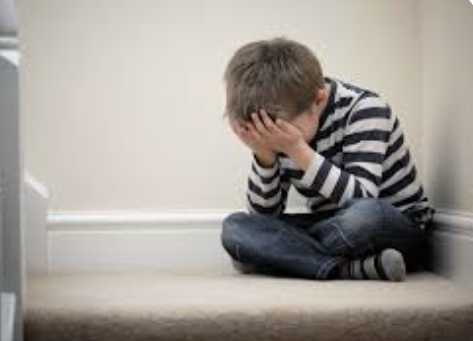Stress is often associated with adults, but it’s important to recognize that children also experience stress, sometimes as intensely as adults do. Kids face various challenges, from academic pressure and social interactions to family changes and world events. However, children often express their stress differently from adults, making it harder to recognize when they’re struggling. In this blog post, we’ll explore the signs of stress in kids, what parents should watch for, and how child therapy/play therapy can help support children during stressful times.
How Stress Affects Kids
Children, especially younger ones, may not have the words to describe how they’re feeling. Instead of saying they’re stressed or anxious, they might show it through their behavior, mood, or even physical health. Stress in kids can arise from various sources, including school pressures, changes at home, friendship conflicts, or even witnessing parental stress. Being aware of how stress presents in kids can help parents identify when their child might need extra support.
Common Signs of Stress in Kids
1. Changes in Mood and Behavior
Stress can cause noticeable shifts in a child’s mood and behavior. You may notice your child becoming more irritable, withdrawn, or easily frustrated. They might have more frequent tantrums, outbursts, or seem overly emotional compared to their usual demeanor. Children might also show signs of regression, such as returning to behaviors they had outgrown, like bedwetting, thumb-sucking, or clinging to a parent.
2. Physical Complaints Without a Clear Cause
It’s not uncommon for stressed kids to experience physical symptoms such as headaches, stomachaches, or other unexplained aches and pains. These complaints are often real and can be a direct result of stress. Kids might say they feel sick when they’re actually anxious or overwhelmed. Frequent visits to the school nurse or avoiding activities due to these physical symptoms could be a sign that stress is manifesting physically.
3. Sleep Disturbances
Stress can significantly impact sleep patterns. Kids who are stressed might have trouble falling asleep, experience nightmares, or wake up frequently during the night. You may also notice your child struggling with bedtime routines or becoming overly tired during the day. Sleep disturbances can make stress worse, creating a cycle that’s hard for children to break on their own.
4. Changes in Appetite
Just like adults, children’s eating habits can change when they’re stressed. Some kids might lose their appetite, while others may start eating more than usual as a way to cope. Skipping meals, overeating, or becoming overly picky with food can all be signs that your child is dealing with stress.
5. Avoidance and School Refusal
A child who is stressed may begin to avoid situations that trigger their anxiety. This could mean refusing to go to school, making excuses to skip activities, or withdrawing from friends. School refusal is a common sign of stress, especially if a child is worried about academic performance, social dynamics, or bullying. If your child suddenly loses interest in things they used to enjoy, it could be a signal that they’re struggling with stress.
6. Difficulty Concentrating and Declining Grades
Stress can make it hard for children to focus and stay engaged, leading to difficulties with concentration and memory. You might notice your child struggling more with homework, losing interest in schoolwork, or their grades starting to slip. Even if they aren’t talking about feeling stressed, these academic changes can be an important indicator.
How Parents Can Help
Recognizing that your child is stressed is the first step in offering support. Here are some strategies parents can use to help their children manage stress:
1. Create a Safe Space for Open Communication
Encourage your child to talk about their feelings by creating a safe, judgment-free environment. Let them know it’s okay to feel stressed and that you’re there to listen. Ask open-ended questions like, “Is there anything on your mind?” or “What’s been bothering you lately?” Sometimes, simply talking about what’s causing stress can be a big relief for a child.
2. Teach Healthy Coping Strategies
Help your child develop healthy ways to cope with stress, such as deep breathing exercises, journaling, or engaging in creative activities like drawing or playing. Teaching mindfulness techniques can also help children stay calm and centered when they’re feeling overwhelmed.
3. Establish Routine and Structure
Consistency and routine can provide a sense of security and stability for stressed kids. Ensure your child has a structured daily routine, including time for relaxation and play. Balancing responsibilities with downtime helps prevent burnout and keeps stress levels in check.
4. Monitor Their Environment
Pay attention to external factors that might be contributing to your child’s stress. Academic pressure, overscheduling, or conflicts at home can all add to stress. If you notice your child is overwhelmed, consider adjusting their schedule or reducing unnecessary stressors where possible.
5. Seek Professional Support
If your child’s stress is persistent or affecting their daily life, it might be time to seek additional support. Child therapy/play therapy can provide kids with a safe space to explore their feelings and learn effective coping strategies. A therapist can work with your child to identify the root causes of their stress and help them develop resilience and emotional regulation skills.
When to Seek Professional Help
While it’s normal for kids to experience stress from time to time, chronic stress can impact their emotional and physical well-being. If your child shows signs of stress that persist for more than a few weeks or their behavior changes dramatically, it’s important to reach out for professional support. Some signs that therapy might be needed include:
- Withdrawal from family and friends
- Persistent sadness, irritability, or mood swings
- Refusal to attend school or participate in activities
- Ongoing physical complaints without a medical cause
- Significant changes in sleep, appetite, or academic performance
Conclusion
Children may not always have the words to express that they’re feeling stressed, but their behavior and emotions can offer important clues. By staying attuned to the signs of stress and providing a supportive environment, parents can help their children navigate life’s challenges with confidence. If stress becomes overwhelming or begins to interfere with daily life, child therapy/play therapy can be an essential tool in helping kids develop healthy coping skills and emotional resilience.
At Kingston & Co Counseling, our experienced therapists specialize in helping children manage stress, anxiety, and other emotional challenges. If you’re concerned about your child’s well-being, we’re here to help. For more information on our services or to schedule an appointment, please contact us. We are dedicated to supporting your family every step of the way.







